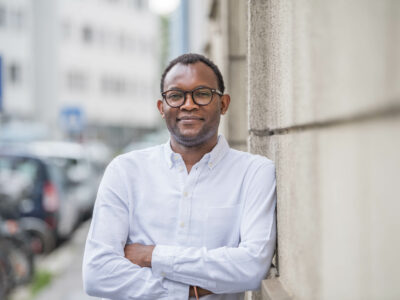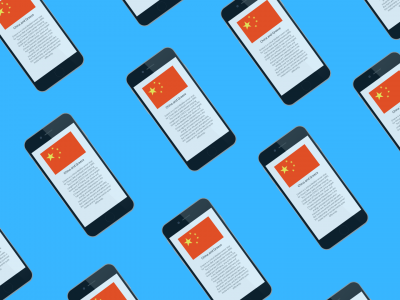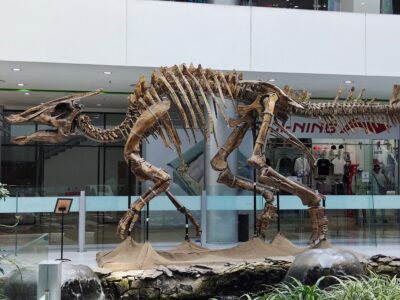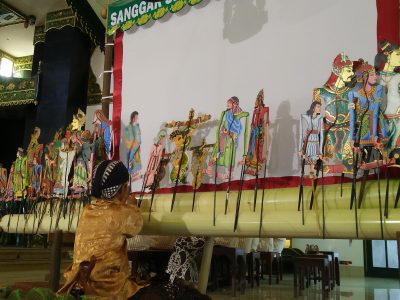
反伊斯蘭的荷蘭自由黨發布的政治性文字,來源:YouTube截圖
2018年3月16日(星期五)下午,許多荷蘭人都看到了荷蘭自由黨(Party for Freedom。荷蘭文:Partij voor de Vrijheid,簡稱:PVV)的競選廣告。紅色粗體字伴隨著隆隆的音樂,文字在螢幕上不斷改變,第一句話是「伊斯蘭教不一樣」(Islam is discrimination)。不吉利的背景音樂與鼓聲繼續播放,而「不一樣」這幾個字隨後被「暴力」、「恐怖」、「猶太人之恨」、「基督徒之恨」等字眼所取代。
荷蘭當地於3月21日舉行選舉。自由黨上傳的這段影片在荷蘭公共廣播機構(NPO)的政治時段放送,抱怨很快地便湧入電視台。很多人不敢相信這種影片居然能播放,也有人抱怨放送時段竟然在下午。
Zouka媒體公司的Abdelkarim El-Fassi在臉書上寫道:
As a viewer, you are angry, bent out of shape, furious, and surprised about how so much rabid hatred can come through NPO. In the room where you feel safest: your own living room. In the middle of the day. And with the big chance that your little one has seen it. Or your nieces and nephews that live miles away that you were unable to protect from so much anger. That was my reaction at least; what if Hamza, Yassin, Romaissa, and Imraan saw this?
身為觀眾的你,看到這段影片會感到非常生氣、憤怒,很震驚這種瘋狂的仇恨言論怎麼能出現在NPO上。當時你就在自身感覺最安全的地方:家裡客廳。大白天的時段,你的小孩很有可能也看到廣告了,還有你那住在好幾英里外的姪子、姪女,你無法保護他們不接收到這些仇恨。至少那是我的反應;如果Hamza、Yassin、Romaissa和Imraan看到這段影片怎麼辦?
針對各方投訴,NPO的監察員表示公共電視對政治訊息並沒有影響力:
In our free country, the border of what is permissible is up to the judge.
在我們這個自由國家裡,什麼允許、什麼不允許,是由法官來界定。
荷蘭總理呂特(Rutte)也發表了他的意見:
I believe that I represent most of the Netherlands when I say that I find this is distasteful.
我相信我能代表大部分的荷蘭人--我覺得這件事很令人反感。
Sylvanna Simons是反對種族歧視的荷蘭政黨Bij1的創辦人,看過影片後如此表示:
I am still sickened by the hate propaganda broadcast on NPO last night on behalf of the PVV at a time when unsuspecting children could also see it.
And what does my surprise paint?
No national outrage?
No “our Judeo-Christian values are on the line?”
Not a word from the late night talk shows?
Nothing at all.
Oh wait. The presenter of the hate spot could be all cozy with the sleeping Netherlands as co-presenter of a morning talk show.
More than ever, it is clear to me that in the Netherlands one Dutch person is not like the other Dutch person.
NPO昨晚代表自由黨播出的仇恨宣傳廣告,到現在還是讓我覺得噁心,不知情的孩子可能也看到影片了。
為什麼我會這麼驚訝?
因為沒有引起人民公憤?
因為沒有「我們的猶太-基督教價值岌岌可危」的反對聲音?
因為晚間的脫口秀節目沒有人提及此事?
對,什麼都沒有。
噢,等等。當時整個荷蘭都在沉睡中,播放這個仇恨訊息的人覺得無關緊要,隔天早上再繼續跟別人搭檔主持晨間脫口秀,談論小貓咪和愛護動物。
我從來沒有這麼確定,有荷蘭人可以跟其他荷蘭人這麼不一樣。
跨宗教的積極份子Chantal Suissa-Runna在推特寫道:
I’ve been sick, but my fever has gone up another degree… the PVV ads. Islam is slavery, deadly, animal abuse…wtf? As a Jew, I do not tolerate this. Many Jews are being used by populist parties as a stick with which to beat Muslims.
— Chantal Suissa-Runne (@CASuissa) March 16, 2018
我還在生病,但我的高燒已經達到另一個境界了……自由黨的廣告。伊斯蘭教是奴隸制、會害死人、虐待動物……什麼鬼話?我身為一個猶太人,無法容忍這件事。很多猶太人被民粹主義政黨利用,作為欺壓穆斯林的工具。
可能面對刑事訴訟?
對海爾特・懷爾德斯(Geert Wilders)和他領導的政黨來說,爭議已經司空見慣了。
懷爾德斯已因歧視性言論而二度被判刑事罪。第一次是包含文章、影片、公開演講的一系列事件,他被控傳播仇恨,仇視摩洛哥人、穆斯林,以及其他非西方人之少數族群。第二次則是在公開活動上帶領他的政黨支持者高唱反摩洛哥人的歌曲。
上面這段影片中,懷爾德斯告訴他的支持者,有三個問題可以定義自由黨。第一個問題是:「你想要歐盟[的人數]變多還是變少?」他的支持者高喊,少、少、少。
第二個問題是,支持者想要更多還是更少工黨。問最後一個問題前,懷爾德斯表示,他接下來說這段話會讓他吃上刑責,但他太重視「言論自由」了,一定得說出口,接著問道:「你想要這個國家、這個城市裡,有更多還是更少摩洛哥人?」2016年的審判中,他的確被判了煽動與鼓勵歧視的罪名。
這次懷爾德斯的情況是否會再次上演?伊斯蘭民主黨(Islam Democrats)在臉書上表示,由於最近的廣告事件,他們打算對他提出吿訴。
We call on everyone in this country, Muslim and not-Muslim, to take a stand against Muslim hate, xenophobia, and other forms of intolerance.
我們呼籲本國所有人--穆斯林與非穆斯林--都站出來,拒絕仇恨穆斯林、仇外、以及任何形式的不寬容。
有些人則持不同意見,不同意投訴。Zouka媒體公司的Abdelkarim El-Fassi在臉書上寫道:
There is at least one thing I will not do. And that is file a complaint. Been there, done that. I will not give him [Geert Wilders] that courtroom anymore. I am not going to to give him a platform to help him step out of the shadow of Baudet (that other creep) [Thierry Baudet is the founder of a competing anti-Islam and racist populist party]. Above all, I do not want to turn my fate over to institutions. We can do much more than we think. By creating new stories and continuing dialogue. Yesterday I was at a debate. Today I was teaching students. I saw in both rooms how hatred had polarized those spaces. Politicians seemed about to tear each other's hair out. Students did not feel safe to state an opinion.
There is nothing easier than using the boob tube [television] to broadcast a message of hatred. But it is really up to us to all to fill the cracks in society. Day in, day out, we must bring new insights to our neighbors, neighborhoods, and fellow citizens. Sometimes, just by being normal. And sometimes, by holding up a mirror.
That is the biggest middle finger that we can give him. We are already doing that. We have to continue to do so. Everyday we need to tell each other that their hatred will be defeated by the intrinsic need for peace; to live together; not to hate each other; but to love.
There is no other way.
至少有一件事是我不會做的,那就是提出告訴。我以前試過了,我不會再讓他(懷爾德斯)上法庭,給他一個平台,幫他走出Baudet(另一個怪胎)的陰影[註:Thierry Baudet是一個反伊斯蘭、種族主義、民粹主義政黨的成立者]。首先,我不想要把我的命運變成制度。藉由創造新故事和繼續對談,我們能做的比我們想像得還要多。我昨天去了一場辯論會,今天在當老師,我看到仇恨如何改變這兩個不同的地方。政治家好像要讓大家充滿焦慮,而學生們覺得表達意見不安全。
要利用廣告放送仇恨言論,沒有什麼比電視更簡單了。但要填補社會中的裂縫,掌控權真的都在我們手中。日子一天一天過去,我們必須為街坊鄰居、其他公民帶來新的視野。有時候,只要表現得正常就好;有時候,要讓他好好檢視自己。
那是我們能給他最大根的中指。我們已經在這麼做了,也必須繼續做下去。我們每天都必須告訴彼此,仇恨會被內在對和平的需求所擊敗、要和平共處、不要相互憎恨,只要表達愛。
這是唯一的辦法。
對於身分的「明顯雙重標準」
譴責自由黨影片的偏激言論很容易,但在荷蘭,生活中的種族歧視卻已不是什麼新鮮事。荷蘭總理呂特在2011年曾說:
Ladies and gentleman, we are going to ensure that we return this beautiful land to the Dutch, because that is our project!
各位女士、先生,我們要確定我們把這片美麗的土地還給荷蘭人,這是我們的任務!
很多人解讀他言詞中的「荷蘭人」排除了移民,甚至非白人移民的第二、三、四代。
Halleh Ghorashi醫生在「荷蘭的種族歧視與『不懂感激的人』」(Racism and ‘the Ungrateful Other’ in the Netherlands)中,寫到荷蘭社會對種族歧視議題保持緘默的情況:
Every reaction that acknowledges the insecure feelings of the “native Dutch” justifies the critique of migrant culture as well. Here we can observe a clear double standard: It is OK for the “native Dutch” to feel defensive and to protect their culture, but migrants are criticized for defending theirs. Migrants are seen as the ones who need to adopt or even assimilate into the new culture. Not many people would consider this asymmetric approach racist, since it is believed that the discussion is about culture and not about race (see also Schinkel on this). This begs the question of why the discussion of the culture of migrants focuses on how it needs to change, yet discussion of the culture of the “native Dutch” recognizes the reasons for a defensive attitude.
每一個 「本土荷蘭人」 的不安全感反應都是批判移民文化的證明。我們在這裡能看到明顯的雙重標準:「本土荷蘭人」可以捍衛自己、保護自己的文化,但移民維護自己的文化卻會受到批評--大家認為移民就是要習慣、融入新的文化,並相信這件事的焦點不在種族,而在於文化(可去了解申克爾(Schinkel)對此事之看法 ),因此很少人覺得這種不平等待遇下隱含種族歧視。這就導出了這個問題:為什麼討論移民的文化時,重點在於怎麼去改變他們的文化,而討論「本土荷蘭人」的文化時,卻能把這當作他們持保守態度的理由?
譯註:申克爾(Willem Schinkel)於2008年出版的著作:《De gedroomde samenleving》
Gloria Wekker醫生在她的書《白人的無知》(White Innocence)裡討論到種族歧視如何默默滲入荷蘭社會而不被察覺。她表示,在荷蘭社會中,大家覺得自己先進又寬容,蒙蔽了自己的雙眼,看不見原本就存在的種族歧視:
In that story we are a very progressive country. We are the champions of women’s liberation, liberation of gays and lesbians. We also like to tell ourselves that we are color blind and anti-racist. The thing is, if you ask people from the colonies or from Morroco or Turkey, this does not conform to their experiences.
在那個世界裡,我們是非常先進的國家,也是婦女、同志解放的先鋒,喜歡跟自己說:我們不在意膚色、我們反對種族歧視。不過事實是,如果你去問問從荷蘭殖民地、摩洛哥或土耳其移民過來的人,他們的經驗可是跟我們的認知相左。
在這段簡短的演講中,她談到荷蘭的種族歧視是如何顯露出來的。
荷蘭種族主義討論的未來走向?
2018年3月18日(星期日),1萬3千人忍著寒風在阿姆斯特丹遊行以反對種族歧視。我們可以看到一個明顯的趨勢:越來越多受種族主義政策影響的人開始打造討論與辯論的平台,也開始參與政治。






